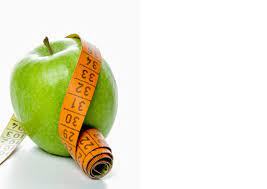What Is the 5:2 Diet and How Does It Work? Experts Explain Whether It's Safe or Not
What Is the 5:2 Diet and How Does It Work? Experts Explain Whether It's Safe or Not
Claudia Totir's photo is from of Getty Images.
"Through the links below, Hearst Magazines and Yahoo may receive commission or money on select purchases."
For years, intermittent fasting has been a hot issue, with some people swearing by it for weight loss and improved health. While there are other types of intermittent fasting, one in particular has received a lot of attention: The 5:2 fasting diet is a type of intermittent fasting.
According to Gina Keatley, a registered dietitian-nutritionist in New York City, the 5:2 fasting diet is "based on cell biologist Valter Longo's study with rats and yeast." Longo has conducted multiple research on this dietary pattern and discovered connections between 5:2 and health.Fasting has a number of health advantages (more on that in a moment).
But what exactly is the 5:2 diet and how does it work? Here's everything you need to know about it.
What is the 5:2 diet, and how does it work?
According to Sonya Angelone, R.D., a spokesman for the Academy of Nutrition and Dietetics, the 5:2 fasting diet is a type of intermittent fasting in which you fast for two days then eat normally for five. On fasting days, you don't have to live on water and air—you merely have very limited calorie intakes, she explains.
"Women are limited to 500 calories per day, whereas men are limited to 600 calories per day," Angelone says. You make the rules after that. "Officially, it doesn't matter which two days you fast on," says the author.According to Jessica Cording, R.D., author of The Little Book of Game-Changers, "the idea is that you want to have one non-fasting day in between." "Doing both fasting days in a row is not advised."
For instance, on Mondays and Thursdays, you may fast for 500 calories and then eat normally on Tuesdays, Wednesdays, Fridays, Saturdays, and Sundays.
On a 5:2 fasting diet, what may you eat?
On non-fasting days, a Mediterranean-style diet is often advised, according to Keri Gans, R.D., author of The Small Change Diet. However, not everyone follows through. "It appears like a lot of individuals just eat whatever they want," Gans says.
Cording recommends focusing on nutrient-dense foods and heathy fats like avocados, nuts, and seeds, along with a variety of protein sources, like fish and lean meats. “If you're having 500 calories on fasting days but it's from Sour Patch Kids, you will have a very different experience than someone eating avocados and healthy fats,” she says.
Story continues
Can you lose weight on a 5:2 fasting diet?
It’s possible to lose weight on a 5:2 fasting diet, but it really depends on what you eat on your non-fasting days, says Cording. If you burn more calories than you take in overall, you’ll lose weight, she says. But, if you end up overeating on your non-fasting days, you won’t.Click here more details
“People also tend to gain the weight back when they stop doing a fasting diet like this,” Cording says."When people quit undertaking a fasting diet like this, they tend to gain weight back," Cording says.
What are the advantages and disadvantages of a 5:2 fasting diet?
There is some evidence from animal studies that the 5:2 fasting diet has health benefits. "There has been an increase in lifespan and a decrease in malignancies in animals and yeast cell investigations," Keatley says. "Having a plan" can also help people feel more "in control" of their eating, she says.
"This diet is easy to follow since you don't have to estimate portion sizes or monitor calories," Angelone explains. "In terms of what and when you can eat during the fasting days, you have a lot of flexibility. In addition, most items are safe to eat on a diet.You can choose which days to fast on the 5:2 diet."
You should lose weight if you can eat normally on non-fasting days, according to Gans. "If done correctly, you will be reducing calories, which will result in weight loss," she explains.
However, there are certain disadvantages to this diet. One of the most important is that on some days, you must significantly reduce your calorie intake. "You will most likely be fatigued, hungry, irritated, and weak on the fasting days due to a lack of enough calories," Gans explains.
It's also "extremely difficult" to consume only 500 to 600 calories each day, according to Angelone. On non-fasting days, you can eat whatever you want, so you're not certain to lose weight, she adds.
People with a history of disordered eating should avoid the 5:2 fasting regimen, according to Cording. She warns, "This might be a slippery slope."
Overall, nutritionists aren't convinced that the 5:2 diet is a good option. "The low-calorie days are really restricting and difficult to adhere to," Angelone says.
You May Also Enjoy
Want to know the secret ways to lose weight fast and easily and build a healthy body? Then check it out here




Comments
Post a Comment